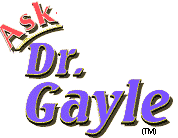
6 Strategies to Help
Avoid Prenatal Depression
The entire childbearing year -- including pregnancy,
childbirth and postpartum -- is a time of tremendous change, psychologically
and physically. Women need support to take care of themselves, emotionally
and physically, through this important life-changing event.
Pregnancy can make you vulnerable to emotional swings,
caused not only by hormones and physical change, but psychological
change, too. Bouts of depression may increase during pregnancy. Much
depends on what the emotional meaning of the pregnancy is for you,
how you deal with your body image during advertisement this period,
the state of your support system, and of course, how well you take
care of yourself physically and emotionally, throughout the course
of your pregnancy.
6 tools to help you prevent depression during the
childbearing year
-
Take a look inside. The psychological
task of pregnancy is giving birth to a new identity as mother and
woman. Finding a way to mother that includes things you want for
yourself can help resolve depression in pregnancy, yielding a happier
mother postpartum. Ask yourself these questions: How prepared are
you for motherhood? What kind of parent do you think you will be?
What are you looking forward to?
-
Explore your family history. Mother-daughter
relationships, relationships with siblings and your marital relationship
will all play parts in your psychological preparation for becoming
a mother. Sometimes, treatment of postpartum depression has been
termed "getting the ghosts out of the nursery."This refers to past
childhood pain, which must be understood so that it is less likely
to be projected onto the your relationship with your own child.
Postpartum depression is often preceded by depression in pregnancy,
in anticipation of the factors underlying the changes to come. Ask
yourself these questions: What was/is your relationship like with
your mother? How do you want to mother? Is this similar to the way
you were mothered or different? What are your fears?
-
Take your needs seriously.
This can help you anticipate your needs in motherhood. Take care
of yourself by seeking support and anticipating your needs for help,
whether it is with housework or issues related to family relationships
that come up during pregnancy. Ask yourself these questions: What
do you need yourself, in order to mother a child? What will you
be giving up to have a child?
-
Pull together as a couple.
Two key factors that contribute to depression following birth also
affect pregnancy. Marital discord and unwanted pregnancy both contribute
to stress in pregnant women. If couples do not pull together, there
can be a postpartum crisis, with depression worsening. Ask yourself
these questions: Do you feel supported by your husband? What kind
of parent do you think your partner will be?
-
Do not be shy about getting professional
help. Do not count on pregnancy hormones to take away depression
that has been longstanding in your life. Becoming a mother is a
much underestimated life change. Emotional support through this
period of change for women is more often than not a deficit in their
prenatal care. Counseling can be very important in helping you work
through your depression.
-
Do not delay! Explore your
inner landscape and talk with your partner about the changes a baby
will bring to your lives. Be aware that this may require some soul-searching
and discovery of your own childhood ghosts. Create the family that
you want to have together.
Gayle Peterson, MSSW, LCSW, PhD is a family therapist specializing in prenatal and family development. She trains professionals in her prenatal counseling model and is the author of An Easier Childbirth, Birthing Normally and her latest book, Making Healthy Families. Her articles on family relationships appear in professional journals and she is an oft-quoted expert in popular magazines such as Woman's Day, Mothering and Parenting. . She also serves on the advisory board for Fit Pregnancy Magazine.
Dr. Gayle Peterson has written family columns for ParentsPlace.com, igrandparents.com, the Bay Area's Parents Press newspaper and the Sierra Foothill's Family Post. She has also hosted a live radio show, "Ask Dr. Gayle" on www.ivillage.com, answering questions on family relationships and parenting. Dr. Peterson has appeared on numerous radio and television interviews including Canadian broadcast as a family and communications expert in the twelve part documentary "Baby's Best Chance". She is former clinical director of the Holistic Health Program at John F. Kennedy University in Northern California and adjunct faculty at the California Institute for Integral Studies in San Francisco. A national public speaker on women's issues and family development, Gayle Peterson practices psychotherapy in Oakland, California and Nevada City, California. She also offers an online certification training program in Prenatal Counseling and Birth Hypnosis. Gayle and is a wife, mother of two adult children and a proud grandmother of three lively boys and one sparkling granddaughter.
Return
to Dr. Gayle Peterson's Home Page
Copyright 1996-2003. Gayle Peterson All rights reserved.
Send Comments and Inquiries to Dr. Gayle Peterson at gp@askdrgayle.com
|